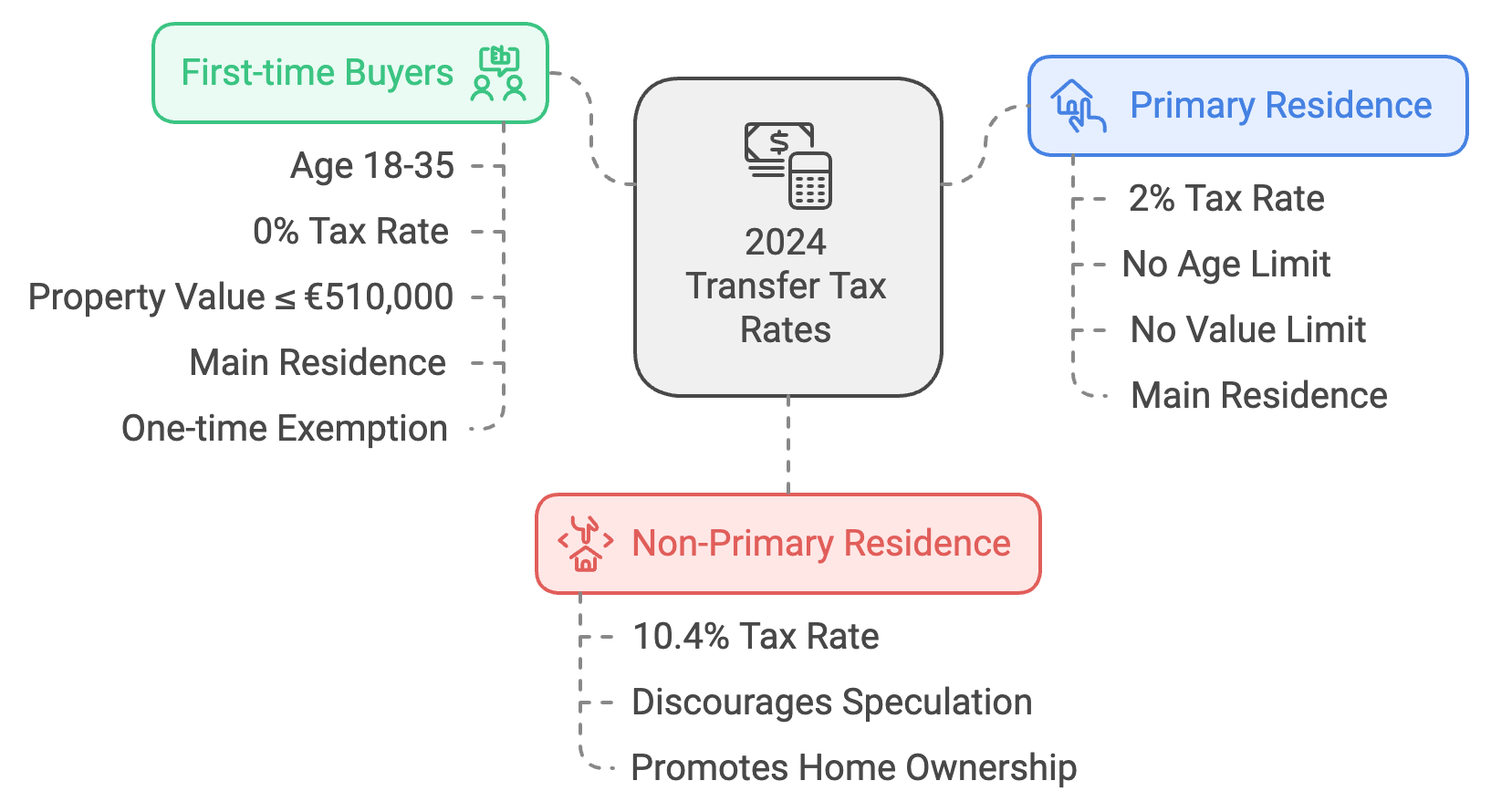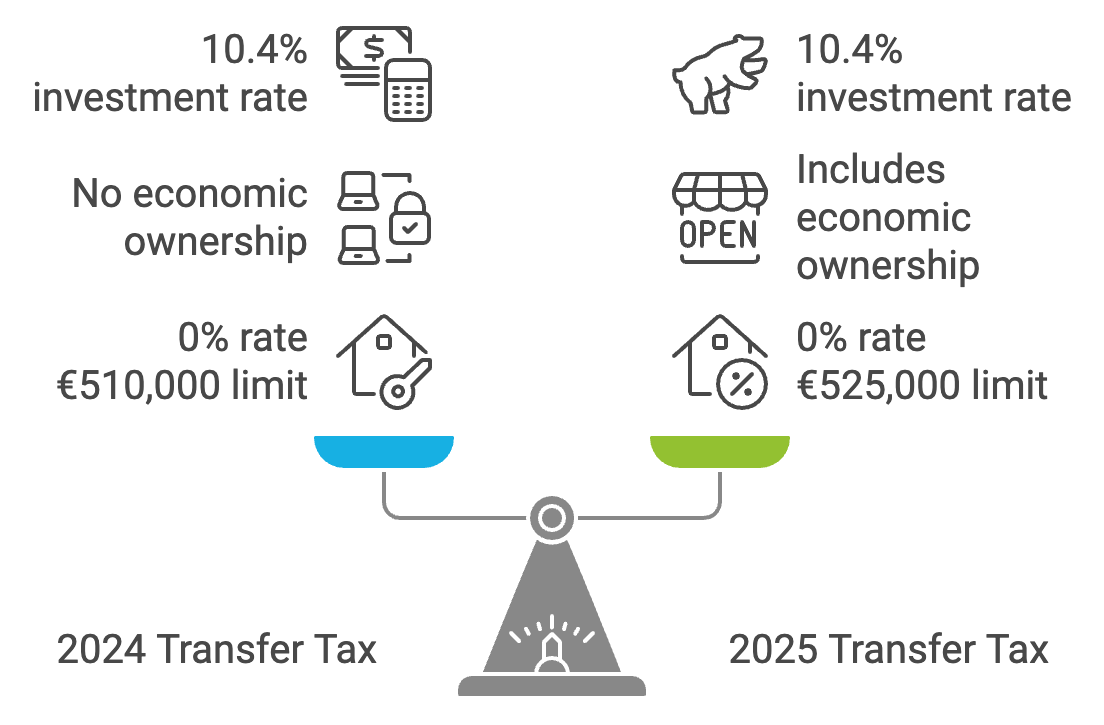What is Transfer Tax?
Transfer tax, or overdrachtsbelasting, is a one-time tax you pay when purchasing property in the Netherlands. The amount depends on your circumstances, such as whether you’re a first-time buyer, an investor, or buying a home for yourself. It’s calculated as a percentage of the property’s value, and the rate you’ll pay is determined by specific criteria, including your age, the property’s use, and its value.
Co-Founder of Xtroverso | Financial Strategist
Linda Pavan brings precision and expertise to Xtroverso, specializing in financial and tax solutions. Her dedication to empowering businesses ensures every decision is backed by clarity and confidence.
Transfer Tax in 2024: Current Rules
In 2024, the transfer tax is based on three main rates. First-time buyers aged 18 to 35 can benefit from a 0% tax rate if the property is valued at €510,000 or less and will be their main residence. This exemption can only be used once.
If you’re buying a property as your primary residence but don’t meet the criteria for the 0% rate—perhaps because of your age or because the property exceeds the value limit—you will pay 2%. There is no maximum value limit for this rate, as long as the property becomes your main residence.
For properties not used as a main residence, such as holiday homes, investment properties, or rental units, the transfer tax rate is 10.4%. This higher rate aims to discourage property speculation and promote home ownership among residents.

Changes to Transfer Tax in 2025
The rules will change in 2025, introducing expanded benefits for first-time buyers and some adjustments for economic ownership transfers.
The 0% rate for first-time buyers will now apply to properties valued up to €525,000, offering more flexibility in light of rising housing prices. All other conditions remain the same, including the age range of 18 to 35 and the requirement that the property becomes your primary residence.
From January 1, 2025, transfers of economic ownership will also qualify for either the 0% or 2% rates, provided all other legal conditions are met. Economic ownership refers to gaining the rights to benefit from the property without holding full legal title. This change makes the rules more inclusive for non-traditional property transactions.
The 10.4% rate for investment properties and second homes will remain unchanged in 2025. However, in 2026, this rate will decrease to 8%, which could influence the timing of purchases for investors and buyers of non-primary residences.

Preparing for the Transfer
To ensure a smooth transaction, your notary will require specific declarations if you qualify for the 0% or 2% rate. These declarations, such as the “Startersvrijstelling” for the first-time buyer exemption or the “Laag tarief” declaration for the 2% rate, must be submitted at least two working days before the transfer date. Proper preparation is key to avoiding delays.
It’s also important to note that transfer tax is calculated on the higher of the purchase price or the market value of the property. Even if you negotiate a favorable deal, the tax might still be based on the property’s full market worth.
Special Rule for Quick Resales
If you resell the property within six months of purchasing it, the transfer tax is recalculated based only on the price difference between what you paid and your resale price. This rule can be beneficial if you’re involved in short-term property transactions or quick renovations.
Planning Ahead for 2026
While the 2025 rules provide stability, investors should take note of the upcoming changes in 2026. The transfer tax rate for properties not used as primary residences will drop from 10.4% to 8%. If you’re considering buying an investment property, this reduction might factor into your decision about when to purchase.
Final Thoughts
Transfer tax is an essential part of buying property in the Netherlands, and staying informed about current and upcoming rules can save you money and stress. The expanded exemptions in 2025 will benefit first-time buyers, while the eventual rate reduction in 2026 offers a more favorable outlook for investors.
